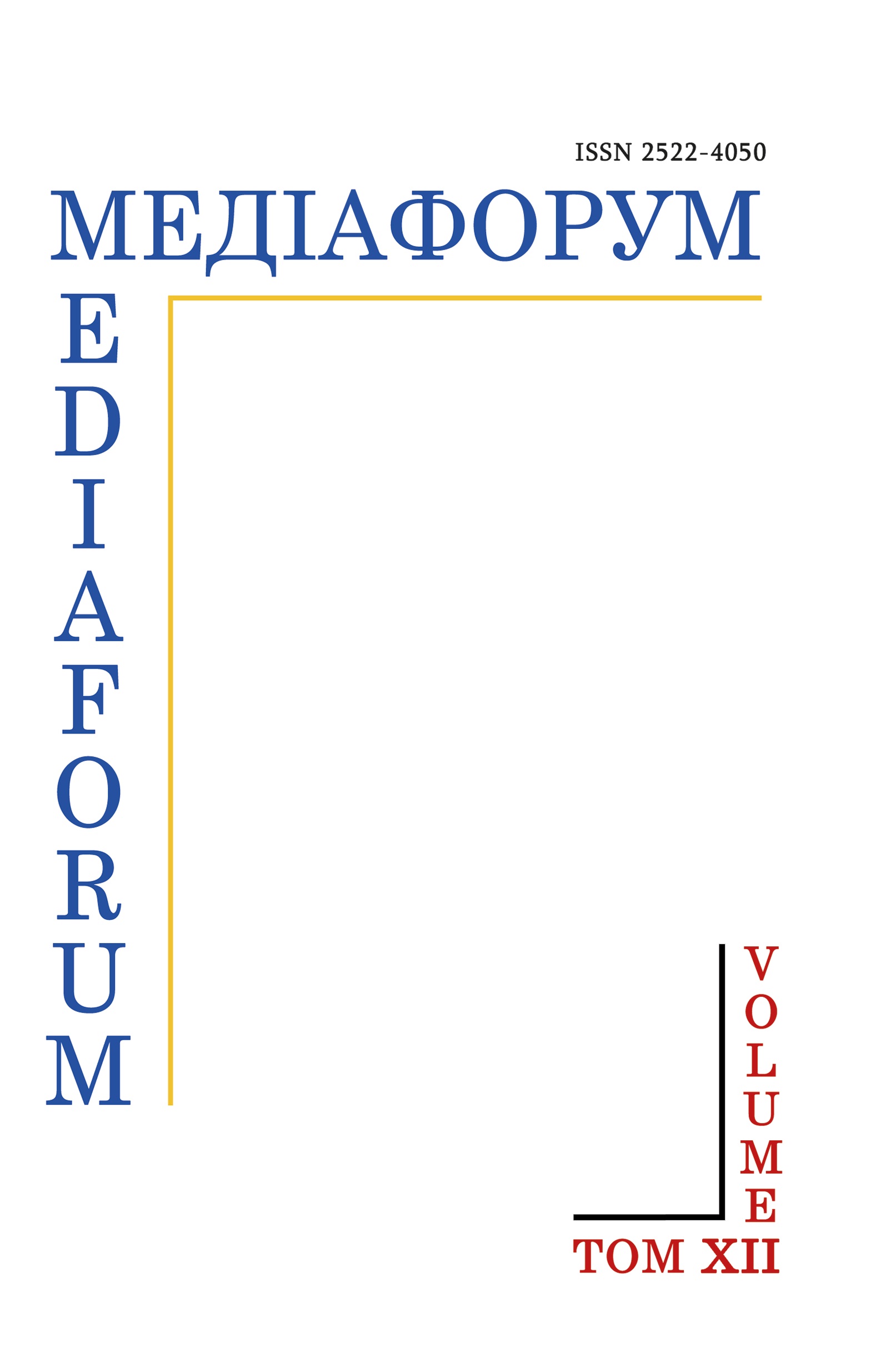Modern Forms and Practices of the Civil Society Self-Organization in the Czech Republic
DOI:
https://doi.org/10.31861/mediaforum.2023.12.47-64Keywords:
Czech Republic, civil society, non-governmental organizations, forms of organization in the social and ecological spheres, forms of legal and financial regulation of activities, state policy on civil societyAbstract
The aim of this article is to study the peculiarities and specifics of Czech civil society. The initial situation and institutional conditions of the social self-organization are analyzed, along with specific examples of representing social interests and other forms of participation, as well as the ideas of state policy and civil society that fuel civic activism or protests. The author emphasizes that today the Czech Republic has a fairly diverse and extensive network of organized civil society, particularly in the ecological and social spheres. The system of political parties and a certain form of legal and financial regulation have not always contributed to the development of civic initiatives. Trade unions benefit from the opportunity to participate in state politics and its institutions.
For Czechs, it is characteristic to express collective interests and outside the parliament – informally through demonstrations, petitions, and initiatives directed towards post-materialistic orientations. Civic initiatives address issues concerning Roma and other minorities, aid refugees, and resolve matters in which the state takes a restrictive position, although it is supported by broad segments of the Czech society. Similar patterns can be observed in protests and demands for political reforms. Czechs are seeking alternatives to existing parties that rely on civil society. The author emphasizes that among the numerous civil society organizations, there are influential ones, but the level of participation of Czechs in them is low. There have been frequent expressions of dissatisfaction with the form of social life and significant reservations towards the “party elite” in society. To some extent, this also applies to associations closely related to politics.
Downloads
References
Protest u Chekhii stav «naibilshym z chasiv padinnia komunizmu». 2019. https://www.bbc.com/ukrainian/news-48525638
Сheski «brontozavry» markuvaly turystychni marshruty Zakarpattia. 2023. https://zakarpattya.net.ua/News/99060-Cheski-brontozavry-markuvaly-turystychni-marshruty-Zakarpattia
Chekhiia: na prezydentskykh vyborakh peremih heneral u vidstavtsi Petr Pavel. 2023. https://www.radiosvoboda.org/a/news-petr-pavel-chekhiya-vybory/32243935.htm
Chmelař, A. 2017. Annual Review of Labour Relations and Social Dialogue, Czech Republic. Labour Relations and Social Dialogue. Bratislava, Belgrad, Warschau: Friedrich-Ebert-Stiftung.
Císař, O., Vráblíková, К. 2015. At the Parliament or in the Streets? Issue Composition of Contentious Politics in the Visegrad Countries. Paper prepared for the ECPR General Conference. University of Montreal.
Císař, O. 2013. A Typology of Extra-Parliamentary Political Activism in Post-Communist Settings: The Case of the Czech Republic. Beyond NGO-ization. The Development of Social Movements in Central and Eastern Europe, eds. K. Jacobsson, S. Saxonberg. Farnham: Ashgate Publishing Ltd. S.139-167.
Civicus Monitor. 2017. Tracking Civic Space. URL: https://monitor.civicus.org/ newsfeed/2016/11/01/czech-republic-overview/
Frič, P., ed. 2016. Občanský sektor v ohrožení? Praha: SLON.
Havel, V. 1988. Anti-political Politics. Civil Society and the State. Ed. J. Keane. L-NY. S. 381-398.
Klaus, V. 2002. Občan a obrana jeho státu. Praha: CEP.
Lang, K.-O. 2013. Tschechien vor der Stichwahl zum Präsidentenamt. URL: https://www.swp-berlin.org/kurz-gesagt/tschechien-vor-der-stichwahl-um-das-praesidentenamt/
Mansfeldová, Z. 2012. Tschechische Republik. Zivilgesellschaft, Verbände und Interessengruppen. Verbände und Interessengruppen in den Ländern der Europäischen Union. Ed. Werner Reutter. Wiesbaden: VS Verlag für Sozialwissenschaften. S.753–782.
Meyer, M. ed. 2017. Patterns in Civil Society in Central and Eastern Europe: A Synthesis of 16 Country Reports and an Expert Survey. Civil Society in Central and Eastern Europe: Challenges and Opportunities. Eds. P. Vandor, N. Traxler, R. Millner, M. Meyer. Wien: Erste Stiftung. S.12-41.
Mička, P., ed. 2015. Analýza občanské participace v ČR – shrnutí leden 2015. Praha: PAKT.
Myant, M. 2005. Klaus, Havel and the Debate over Civil Society in the Czech Republic. Journal of Communist Studies and Transition Politics 21 (02): S. 248–267.
Navrátil, J., Pejcal, J. 2017. Country Report: Czech Republic. In: Civil Society in Central and Eastern Europe: Challenges and Opportunities, eds. P.Vandor, N. Traxler, R. Millner, M. Meyer. Wien: Erste Stiftung. S. 43–57.
Navrátil, J., Pospíšil M. 2014. Dreams of Civil Society Two Decades Later. Civic Advocacy in the Czech Republic. Brno: Masaryk University Press.
Otáhal, M. 2011. Opoziční proudy v české společnosti 1969–1989. Praha: Ústav pro soudobé dějiny.
Prouzová, Z. 2015. Data a fakta o neziskovém sektoru v ČR. Studie pro Koncepci politiky vlády vůči NNO do roku 2020 (verze k 1. 3. 2015). Praha: CVNS.
Ronovská, K., Vitoul, V. 2017. Legal Framework for Civil Society in the Czech Republic. Civil Society in Europe. Minimum Norms and Optimum Conditions of its Regulation. Eds. T.van der Ploeg, W.J.M. van Veen, C.R.M. Versteegh. Cambridge: CUP. Р. 344–362.
Sbírka zákonů České republiky, § 95 Zákona č. 108/2006 Sb., o sociálních službách, ze dne 14. března 2006.
Sbírka zákonů ČR, č. 89/2012. Zákon ze dne 3. února 2012 Občanský zákoník.
Seznam občanských sdružení/ Podrobný výpis 500 položek. 2021. https:// web.archive.org/web/20070608193610/http://www.mvcr.cz/rady/sdruzeni/sdruz027.html
Vlada České republiky. Rada vlády pro nestátní neziskové organizace. http://www.vlada.cz/cz/pracovni-a-organy-vlady/rnno/zakladni-informace-767/














